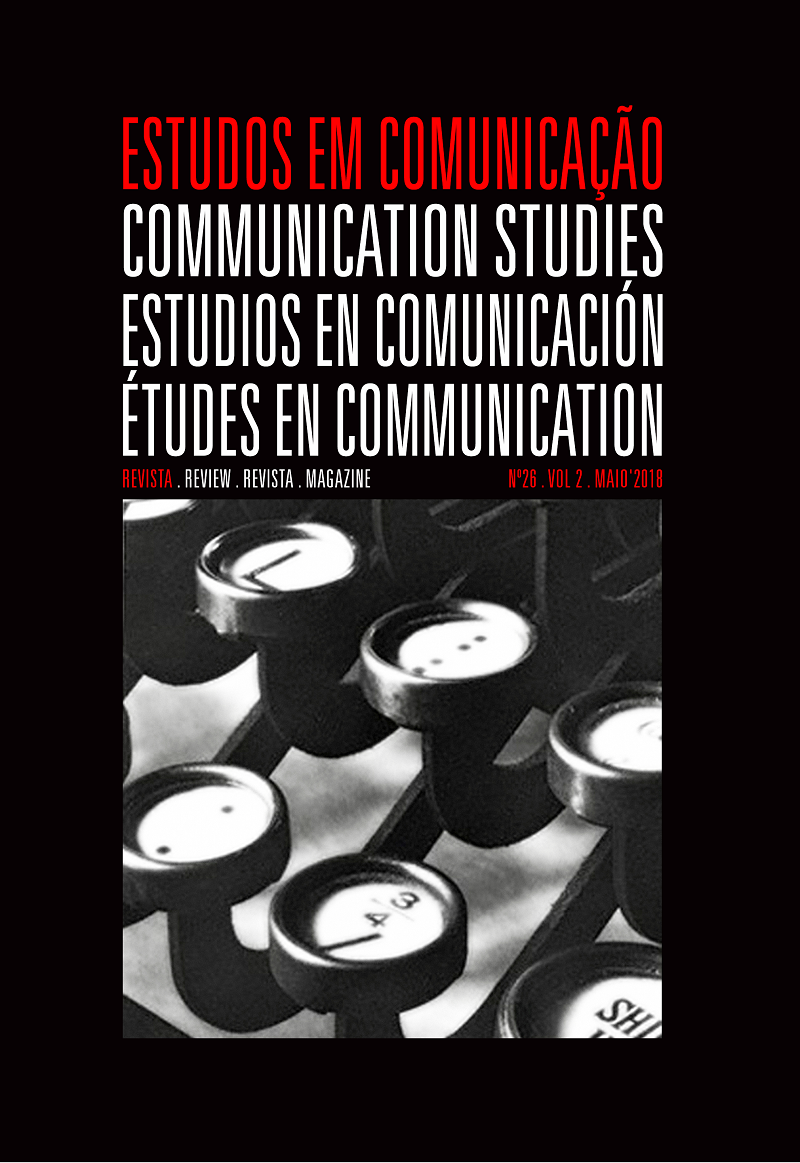Enquadramentos midiáticos de Lula na imprensa francesa: uma análise do Le Monde e Le Figaro
Palavras-chave:
enquadramentos, política, Operação Lava Jato, Lula.Resumo
Este trabalho analisa os enquadramentos midíaticos construídos pelos jornais Le Monde e Le Figaro em relação ao envolvimento do ex-presidente do Brasil Luiz Inácio Lula da Silva na Operação Lava Jato, investigação de ampla repercussão nacional e internacional. A partir da seleção e análise de 32 matérias publicadas no site dos veículos franceses, sugere-se que os enquadramentos dados a Lula remetem ao sucesso de seus dois mandatos como Chefe de Estado e à sua personalidade. No entanto, os títulos das matérias apresentam enquadramentos negativos em relação ao conteúdo apresentado nos textos.
Referências
Coleman, R.; Thorson, E. & Wilkins, L. (2011).Testing the effect of framing and sourcing in health news stories. Journal of Health Communication, 16, 941-954.
D’Angelo, P.; Calderone, M. & Territola, A. (2005). Strategy and issue framing: an exploratory analysis of topics and frames in campaign 2004 print news. Atlantic Journal of Communication, 13(4), 199-219.
David, C. et al. (2011). Finding frames: comparing two methods of frame analysis. Communication Methods and Measures, 5(4), 329-351.
Entman, R. (1994). Framing: toward clarification of a fractured paradigm. In M. Levy & M. Gurevitch (ed.), Defining media studies. New York: Oxford University Press.
Goffman, E. (1974). Frame analysis: an essay on the organization of experience. New York: Harper.
Hample, D.; Warner, B. & Young, D. (2009). Framing and editing interpersonal arguments. Argumentation, 23, 21-37.
Herkman, J. (2016). Construction of populism. Meanings given to populism in the nordic press. Nordicom Review, 37(special issue), 147-161.
Jasperson, A. (1998). Framing and the public agenda: media effects on the importance of the Federal Budget Deficit. Political Communication, 15, 205-224.
Kepplinger, H. M.; Geiss, S. & Siebert, S. (2012). Framing scandals: cognitive and emotional media effects. Journal of Communication, 62, 659-681.
Lecheler, S. et al (2015). The effects of repetitive news framing on political opinions over time. Communication Monographs, September, 82(3), 339-358.
Lecheler, S.; De Vreese, C. H. (2011). Getting real: the duration of framing effects. Journal of Communication, 61, 959-983.
Matthes, J. & Kohring, M. (2008). The content analysis of media frames: toward improving reliability and validity. Journal of Communication, 58, 258-279.
Menashe, C. & Siegel, M. (1998). The power of a frame: an analysis of newspaper coverage of Tobacco Issues – United States, 1985-1996. Journal of Health Communication, 3, 307325.
Pedersen, R. T. (2014). News media framing of negative campaigning. Mass Communication and Society, 17, 898-919.
Porto, M. (2004). Enquadramentos da mídia e política. In A. A. C. Rubim (org.), Comunicação e política: conceitos e abordagens (pp. 73-104). Salvador: Edufba.
Seo, K.; Dillard, J. & Shen, F. (2013). The effects of message framing and visual image on persuasion. Communication Quarterly, November–December, 61(5), 564-583.
Thompson, J.B. (2002). O escândalo político: poder e visibilidade na era da mídia. Petrópolis: Vozes.
Yan, C.; Dillard, J.; Shen, F. (2012). Emotion, motivation, and the persuasive effects of message framing. Journal of Communication, 62, 682-700.
Yang, A. (2015). Building a cognitive-sociological model of stereotypes: stereotypical frames, social distance and framing effects. Howard Journal of Communications, 26, 254-274.
Weber, M. H. (2000). Comunicação e espetáculos da política. Porto Alegre: Ed. UFGRS.


